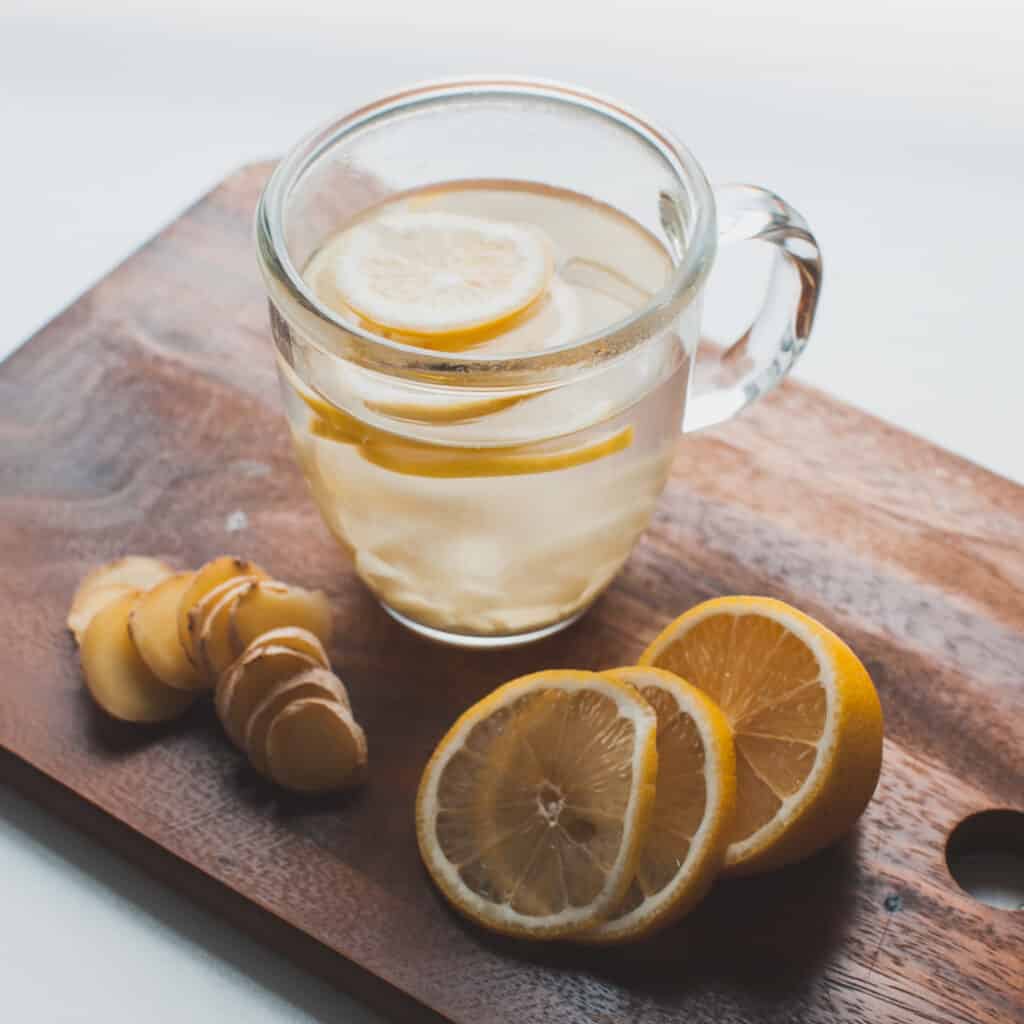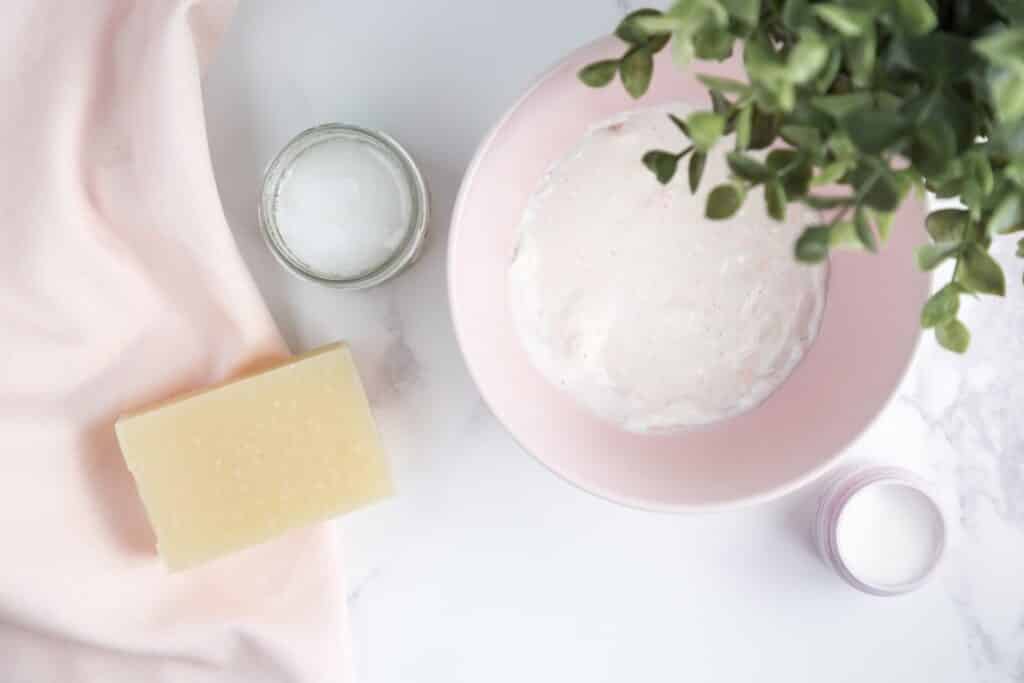A question I get asked all of the time is how to support natural detox when pregnant and nursing. It’s a great question, and something all pregnant and nursing women should be intentional about doing!

First, let’s start by addressing the role of the liver and why it is so important.
The liver is responsible for over 500 functions in the body. One of those major functions is regulating most chemical levels in the blood.
All the blood leaving the stomach and intestines passes through the liver. The liver processes, breaks down and balances the blood. It is responsible for the metabolism and/or removal of toxins, drugs and otherwise unusable particles.
The liver produces a substance called bile. When the liver filters out toxins, it uses bile to carry away those waste products to the gallbladder and eventually out of the body through the digestive tract.
Clearly, the liver is our body’s powerhouse detoxification organ. And as you can see, detoxification is a constant and ongoing process. Not a one-time event or cleanse.
While we’re on the topic of detox…
It’s worth noting that the liver is not our only detox organ. The kidneys, lungs, lymph, colon, and skin are all detox organs.
While uniquely separate, each of these organs works alongside and in a complementary way to one another to rid the body of toxins – both those that are produced within the body and those that originate from outside of the body.
What is the difference between targeted support and intentional detoxification of the liver? And which one should we choose while pregnant and/or nursing?
You may have heard me say before that I do not recommend certain detoxification therapies during pregnancy or nursing. Some of these include: castor oil packs, infrared saunas and targeted detoxification supplement protocols.
During more targeted detox therapies such as the ones listed above, the goal is to release toxins within the body. But we do not want to be pulling stored toxins out of the tissues and into circulation within the body during pregnancy or nursing.
Why?
Studies have shown that toxins within the mother’s body often pass through the placenta or through the breast milk to baby. Even more worrisome is that toxin levels in the placenta were sometimes found to be higher than the levels in the mother’s blood.
During pregnancy or breastfeeding, the goal is to support the liver to do its normal detoxification and regulation of the blood without creating more of a toxic load to process through heavy detox therapies.
Here are 12 Ways to Support the Liver and Natural Detox When Pregnant or Nursing:
1. Get Quality Sleep
Sleep is when our bodies do most of their work in detoxification, repair and restoration. It is crucial to be getting at least 8 to 9 hours of quality sleep in order to properly heal and recover.
The liver naturally detoxifies when you’re in the deepest non-REM cycle which normally takes place around 12 – 3am.
Studies have found that losing out on quality sleep hinders the liver function, including its ability to process insulin. Thus, increasing risk for metabolic disorders such as diabetes. During pregnancy, the body’s cells already use insulin less effectively, a condition called insulin resistance.
Getting enough quality sleep is incredibly important not only for detox and healing; it is also important to lower risk for pregnancy complications such as gestational diabetes.
How: Wear blue light blocking glasses in the evenings. Put away screens an hour or two before bed. Get natural sunlight to the eyes during the sunrise and sunset hours. Keep the temperature of your bedroom cool (between 60-70 degrees).
2. Reduce Stress + Let Go of Anger and Resentment
Both reducing stress and letting go of negative emotions held within the body are incredibly healing to the liver. Detoxification and repair happen when the body is in the parasympathetic state (the opposite of fight-or-flight!). For that reason, it’s important that we learn how to release stress and let go of negative thought patterns that keep our body in that heightened state of alert.
“When the body is dominated by the sympathetic nervous system it diverts resources to the muscles (fight or flight) and away from organs (rest and digest). Stress affects our bodies in many different ways: our muscles tighten and energy is shunted away from our repair and renewal system—and this means that we will not be detoxifying optimally. For this reason, our bodies will store more toxins in fat cells when we are stressed because they do not have the energy required to convert and excrete them.” Source
How: Get outside. Talk with a trusted friend, family member or counselor. Pray or meditate. Read the Bible. Spend some time doing something you love.
3. Reduce Sugar + Cut Processed Foods
The liver is responsible for glucose metabolism. That means it is in charge of turning the sugar we eat into fuel for our muscles, brain and body.
When we consume too much sugar, the liver is overworked with processing and storing that sugar (which can also lead to fatty liver disease in the long run!), and it is not able to fully and properly perform other important functions of detoxification and cleansing.
Similarly to sugar, processed foods contain all sorts of chemicals and compounds that are foreign to the body and require extra work for the liver to process. Processed foods can eventually lead to sluggish and lacking liver function.
How: Go through your pantry and refrigerator. Get rid of candy, processed snacks and conventional dressings. Read labels and pitch things with added sugars or refined vegetable and seed oils.

4. Eat a Nutritient-Dense Diet, Especially Good Fats!
It goes without saying that eating a nutrient-dense diet is imperative in creating the best environment for your liver to do its many jobs.
One lesser known fact is that healthy fats are imperative for liver detoxification. Especially high quality animal fats such as lard, tallow and butter.
While highly processed vegetable and seed oils slow the liver down to a sluggish state, healthy animal fats actually aid the liver in the creation of bile.
“In the simplest form, when you eat fat, your liver releases bile to metabolize the fat…Bile is a crucial part of the natural detoxification process within your body, if your bile levels are adequate you will eliminate toxins efficiently.” Source
How: Start with butter – it’s easy to incorporate into sautéed vegetables or on sourdough toast. Buy a high quality butter from grass-fed cows. Next, think about cooking with a high-quality lard or tallow such as those from Epic or Fatworks brands. Focus on these quality fats along with clean proteins and cooked vegetables to start.
5. Gentle Movement
Gentle movement benefits the liver greatly. First, it lowers the stress hormone cortisol, which allows the liver to operate optimally in the parasympathetic state.
Movement has also been shown to improve insulin resistance, decrease the fatty acid load on the liver, increase fat metabolism and improve cell health within the liver.
Perhaps one of the greatest benefits of gentle movement is its ability to stimulate lymphatic flow, allowing toxins to be flushed through the body and eventually excreted.
How: Do what you love! Walking, pilates, yoga…even playing outside with your kids or doing housework indoors can be sources of movement and gentle exercise!
6. Rebounding or Dry Brushing for Lymphatic Flow
The liver produces a large amount of lymph, which is estimated to be 25 to 50% of the lymph flowing through the thoracic duct. Lymphatic flow through the liver is incredibly important in liver microcirculation. And when proper lymphatic flow through the liver is not occurring, the chances for liver disease and dysfunction increase.
How: Spend a few minutes every day bouncing gently on a rebounder (mini trampoline). Watch this short video on how to properly dry brush in order to help stimulate lymphatic flow before showering.
7. Swap Out Beauty and Personal Care Products
Research has shown that low-level exposures to environmental toxins may partially explain the increasing problem of liver disease in U.S. adults.
When our toxic load gets too high, it simply puts too much stress on the liver to be able to detox our bodies properly. Toxins build up in the body and manifest in a whole host of negative ways, including autoimmune disorders, diseases and declined health.
One big way to lower the body’s toxic load is to switch to toxic-free beauty and personal care products. Did you know that most conventional beauty and personal care products contain chemicals that are known endocrine disruptors, allergens and carcinogens?
How: Rotate out makeup and personal care products one at a time. Opt for non-toxic beauty brands such as Primally Pure (their deodorant and facial serums are my favorite!), 100% Pure, Dr. Bronner’s, Innersense, W3LL People, Mineral Fusion or Risewell. For my full list of healthy products, click here.
8. Swap Out Cleaning Products
Just as discussed for beauty and personal care products, most cleaning products are laden with toxic chemicals. In order to lower the liver’s toxic load, we should switch all of our cleaning, laundry and home care products to non-toxic options.
How: Again, swap out cleaning products one at a time. Choose non-toxic replacements such as Molly’s Suds, Kosmatology, Puracy or Aunt Fannie’s.
9. Filter Both Water and Air
When we filter our water and our air, it decreases the amount of stress on our bodies to do the “filtering.”
Particularly, proper hydration helps the kidneys function more optimally. When your kidneys are functioning properly, they filter 120 to 150 quarts of blood every day and produce one to two quarts of urine. They prevent waste and excess fluid from building up in cells.
According to the EPA, the levels of indoor air pollutants are often 2 to 5 times higher than outdoor levels, and in some cases these levels can exceed 100 times that of outdoor levels of the same pollutants.
And while the EPA does hold certain regulations on chemical levels in drinking water, the legal limit is often hundreds of times higher than the health standards recommended by scientists and public health agencies. Too often, legal limits are based more on what can be achieved in terms of treatment costs, and less on public health.
How: Use tools to filter the air and water in your home. Austin Air Filters and Air Doctor air filters are my favorite. I like Clearly Filtered (use the code ORGANIC15 to save 15%) for a pitcher filter option and Berkey for a gravity filter option.

10. Get Outside
The benefits of getting outside are endless. We already talked about outdoor air quality being generally much better than indoor air quality, but there are other benefits as well.
Getting outside to take in the sun’s natural rays, especially during the sunrise or sunset hours, is beneficial in setting the body’s natural circadian rhythm, melatonin production and sleep cycles. When exposed to natural light, a person’s body clock becomes synchronized with sunrise and sunset, allowing them to stay more energized during the day and sleep better when it’s dark.
Finally, taking just 20 minutes to get outside in nature was shown to have a significant effect in lowering the body’s cortisol levels.
How: This might be the easiest (and least expensive!) change you can make. Simply get outside, especially during sunrise and sunset hours. Go for a short walk. Sit with your decaf coffee outside. Read outside.
11. Take a Toxin Inventory
We talked about toxic load earlier in reference to beauty, personal care and cleaning products. But toxins are also hiding in the plastics we use, the candles we burn and the fragrances we spray.
To lower our overall toxic load and burden on the liver, we should remove synthetic fragrances and plastics (as much as possible!) from our home.
How: Pitch all candles and home fragrances. Switch to pure essential oils and diffusers or clean beeswax candles such as Fontana (use the code CARRIE15 to save 15%) or Bluecorn brands.
12. Diaphragmatic Breathing
Cortisol, our “stress hormone,” can inhibit the manufacturing and flow of bile through the liver. As we learned earlier, bile is essential for carrying away and excreting waste from the liver out the body.
Diaphragmatic breathing has been clinically shown to both improve sustained attention and reduce overall cortisol levels. As cortisol levels are reduced, the liver is able to more efficiently detox waste from the body.
Further, lowering cortisol through diaphragmatic breathing improves the body’s ability to enter the parasympathetic state, which is necessary for proper liver function and detoxification.
As we stated earlier, the lungs are an important detox organ. A study found that air from healthy people’s exhilations contained over 200 volatile compounds and 3500 other compounds. Essentially, there are huge numbers of toxins and other substances beyond simply carbon dioxide that are eliminated through our breath.
How: Andrew Huberman has a great short video on diaphragmatic breathing that specifically targets lowering cortisol during stress.
I hope you found these tips helpful!
_________________________________________________________________________________________






